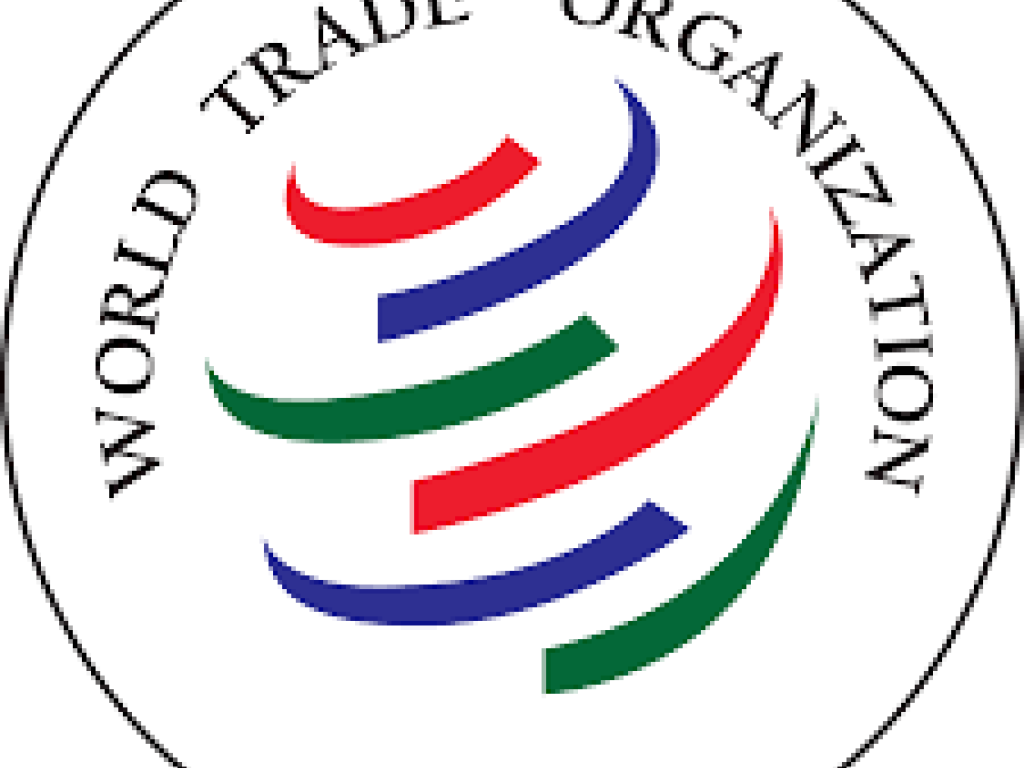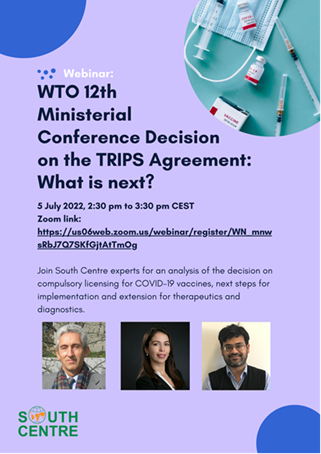Event Report: South Centre webinar on the WTO 12th Ministerial Conference Decision on the TRIPS Agreement

By Laura Gehle
‘They requested strawberries, but received potatoes’ said Prof Carlos Correa on Tuesday, 5th July 2022, at a webinar where South Centre experts discussed the impact of compulsory licensing for COVID-19 Vaccines following the WTO 12th Ministerial Conference Decision on the TRIPS Agreement that was adopted on 17th June 2022.
Hosted by Executive Director Professor Carlos Correa alongside Programme Coordinator Dr. Viviana Munoz Tellez and Senior Programme Officer Nirmalya Syam, the webinar focused on the scope covered by the decision as well as its implementation. The South Centre is an intergovernmental organization of developing countries with the aim to help them combine their efforts and expertise to highlight their interests at international fora.
Breaking down the decision, the presenters highlighted that the outcome is different than widely expected since it does not provide a waiver on Intellectual Property for COVID-19 vaccines as proposed by South Africa and India in 2020. The decision only covers COVID-19 vaccines at this point and is strictly limited to patents. With regard to other IP related matters, this means that it does not involve trade secrets and therefore is by many considered a drawback for developing countries on their access to pharmaceutical know-how. When asked whether developing countries could still make progress despite the narrow scope of the decision, Professor Correa emphasized that know-how can be developed and that developing countries indeed can move forward, which just might take them longer. In response to a question on how compulsory licenses could apply to trade secrets, Prof Carlos referred to Olga Gurgula and John Hull paper entitled ‘Compulsory licensing of trade secrets: ensuring access to COVID-19 vaccines via involuntary technology transfer’ as a good exposition.
With regards to the importance of therapeutics and diagnostics, Dr. Munoz Tellez pointed out that the decision is necessary to be extended to them to increase the global production and supply thereof. This will likely happen by end of the year as stated in the decision’s para 8. For implementing the decision, national action is necessary, which mainly requires focusing on who will be the institutional party to do so. The most important take from the decision is that it is required to be reviewed periodically, so the challenges experienced in the pandemic can be used to build effective solutions in case of future pandemics with regard to Intellectual Property and technology transfer.
A video of the webinar is available here
